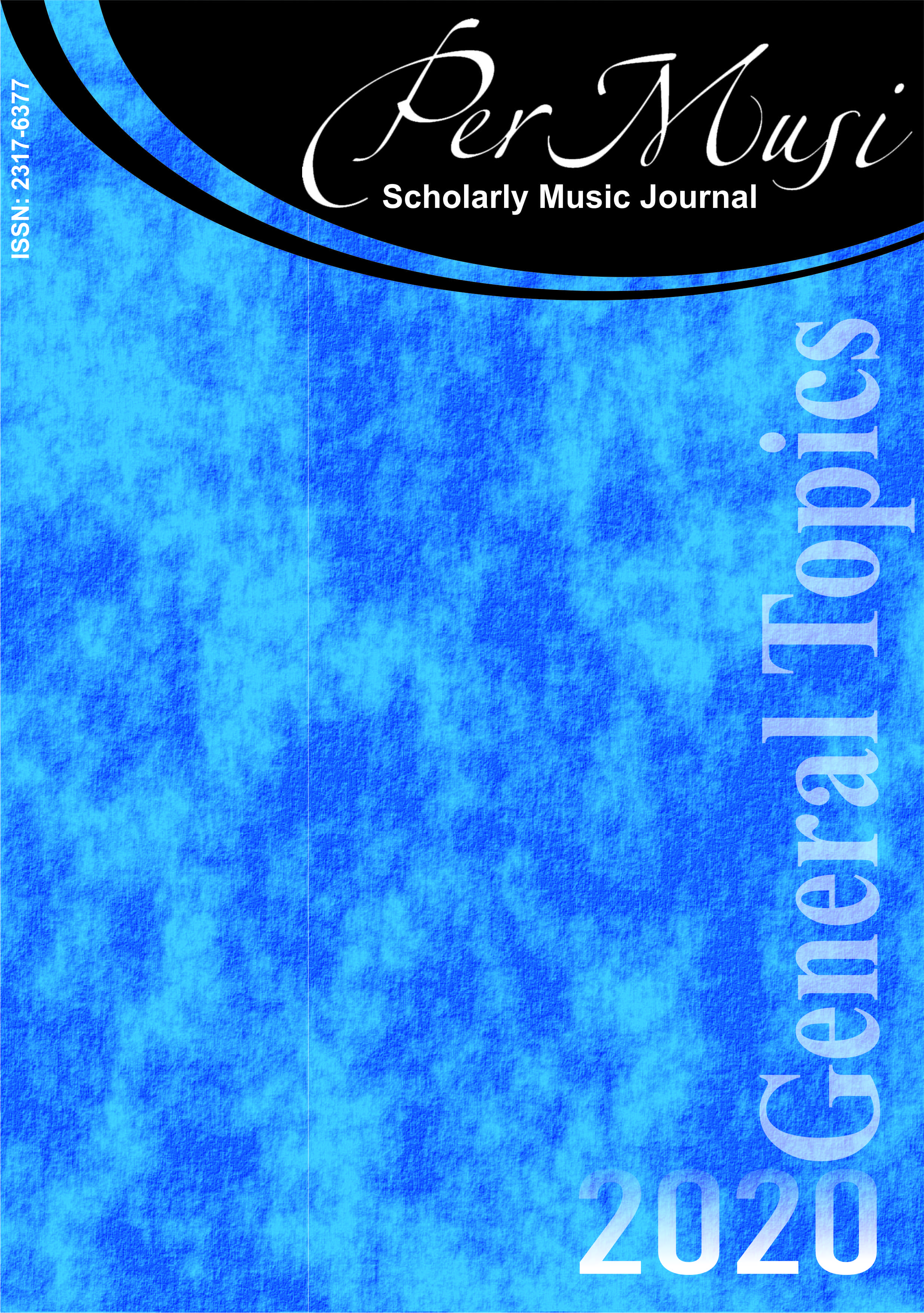Variações sobre um tema de Rimbaud
DOI:
https://doi.org/10.35699/2317-6377.2020.20704Palavras-chave:
Literatura e música, Som, ruído e ritmo, RimbaudResumo
O artigo apresenta análise do poema “Cocheiro bêbado”, de Rimbaud, tradução de Augusto de Campos. A versão em português potencializa, no plano da expressão, a impressão acústica dos deslocamentos dos personagens no enredo lírico. Mais especificamente, os ruídos, resultantes de figuras sonoras, acento simétrico, periodicidade etc., e alteram sensivelmente o modo de ler os versos. Em uma perspectiva, o poema sinaliza um processo de emancipação do ruído ocorrido tanto na poesia quanto na música, no final do século XIX, espraiando-se pelo XX, e que também culminou na ascensão do status dos sons percussivos. Procederemos a uma introdução teórica sobre os pontos referidos e, em seguida, buscando interação entre a versificação e a oralidade, entre o verso e a música, apresentaremos duas camadas de leitura, a sonoro-rítmica e a estrutural, cada qual com subdivisões específicas – variações – suscitadas pelo poema. Para cada variação apresenta-se uma curta interpretação musical com percussão e respectiva partitura.
Referências
Andrade, Oswald. 1975. Poesias reunidas. Obras Completas. Rio de Janeiro: Civilização Brasileira.
Bosi, Alfredo. 2000. O ser e o tempo da poesia. São Paulo: Companhia das Letras.
Campos, Augusto de, Pignatari, Décio, e Haroldo de Campos. 2006. Teoria da poesia concreta: textos críticos e manifestos. Cotia-SP: Ateliê.
Campos, Augusto de. 1978. Verso, reverso, controverso. São Paulo: Perspectiva.
Cohen, Jean. 1978. Estrutura da linguagem poética. São Paulo: Cultrix.
Cook, G. 1997. Teaching Percussion. New York: Schirmer Books.
Friedrich, Hugo. 1991. Estrutura da lírica moderna. São Paulo: Duas Cidades.
Pessoa, Fernando. 1998. Obra poética. Rio de Janeiro: Nova Aguilar.
Pound, Ezra. 1970. ABC da Literatura. São Paulo: Cultrix.
Ramos, Maria Luiza. 1972. Fenomenologia da Obra Literária. 2ed. Forense: Rio de Janeiro.
Russolo, Luigi. 2004. The Art of Noise (futurist manifesto, 1913). Trad. para o inglês por Robert Filliou. Great Bear Pamphlet. Disponível em: ubuclassiscs.com Acesso em: Março, 13, 2018.
Downloads
Publicado
Edição
Seção
Licença
Copyright (c) 2021 Per Musi

Este trabalho está licenciado sob uma licença Creative Commons Attribution 4.0 International License.

Exceto onde está indicado, o conteúdo neste site está sob uma Licença Creative Commons - Atribuição 4.0 Internacional.












